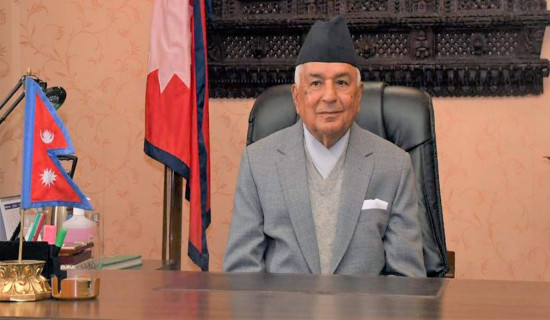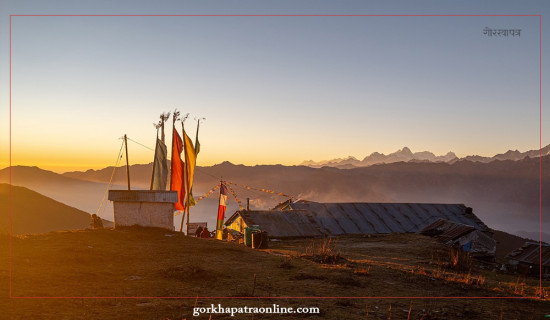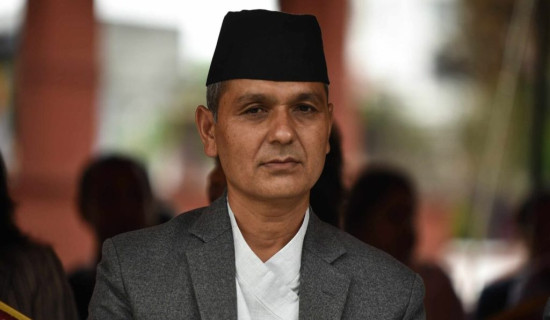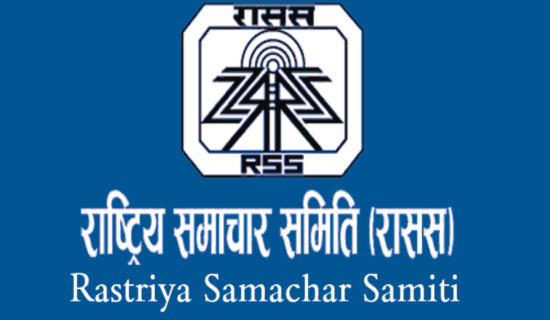- Thursday, 19 February 2026
Accountability Counts A Lot
Yug Bahadur
One cannot say that no development has taken place in Nepal in the last few decades after the multiparty democracy was re-established. This would be a very biased thinking and also unfair for the people who contributed so much for this cause. Many big projects have been started during that time, the only shortcoming being the lack of proper planning on the policy-makers’ side and lack of accountability on the part of the private sectors and government officials, too.
The most beautiful part of the present political system is that the media can really expose the wrongdoers in virtually every sector, including the bureaucracy, the security institutions, the courts and also the private sector. This is a far cry from the older days when certain institutions were beyond the reach of the media. But the sad part is that no high level mischief makers have really been punished severely.
Little response
The competition among the media outlets, whether in the print sector or in the broadcast outlets, is too much, in doling out many allegations, but there is little response from the proper government institutions, which were formed solely to punish the guilty in whatever scam they were involved in. Only small fries, who have no protection from the political parties, are punished and bigger wrong-doers simply get off ‘scot-free’. Right now, we will talk of the many media outlets, which a small economy can hardly handle. It is exactly like the fact that there are too many political parties for such a small country like Nepal to be burdened with. One expert in a TV talk programme pointed out how it was not good for a small country to have that many parties.
This seems true, as even the United States has only two major parties, the Democrats and the Republicans. Similarly, Britain also has only two prominent parties, the Labour Party and the Conservative Party. In China, there is only one party and they are doing pretty well both economically and politically. There is also total harmony among the citizens. India may be a little different, but in its national politics, it has only two dominant parties, the presently ruling Bharatiya Janata Party and the Indian National Congress. Because of its diversity, in some states there are also some local parties who have made their strength felt, but mostly only at the local areas where they dominate.
That Nepal is trying to do things like India is doing is laughable, because it is smaller than many of India’s states. India is strong in spite of the fact that it has a diverse populace from South to North and from the Eastern coasts to the Western coasts. It must not be forgotten that any person who hail from different states like to say they are Indians first, and then only elaborate from which state they come from and to which community they belong. It would do well for the political leaders in our own country to also try and learn these finer points, which has kept India as a united and strong nation.
This, our own political leaders should imitate from India, not only the bad points, that country could have. More importantly these sorts of visionary politics, should be drilled into the minds of the new generation of young leaders as well, who are waiting in the wings to replace the older generation. Just the ‘changing of guards’ will mean nothing, if the newer leaders only imitate the older generation. They can make their presence felt only if they can change dogmatic views of the past while leading the country in the future.
The newer generation of leaders must also be told that politics is not a profession, it is mainly social service. The leaders should be ready to satisfy the populace and not antagonise them, if they really want to be seen as visionaries. For now, the proportional quota policy of the political parties in every sector is a visionary policy. To make every Nepali happy and prosperous, but this must also not be made into a practice where competent individuals will have to give way to others because they represent one community or the other. The nation should be guided in the future not by making the citizens dependent like a child is dependent on his or her parents, but to take individual responsibility to be an independent citizen of the country.
Here, we should not forget about how a diverse country like India has remained independent and where even the United States waited for almost two centuries to appoint a woman, that also a woman of different colour, to be a judge in the country’s Supreme Court. Such things have been telescoped in Nepal, but again, that is where visionary leaders are required to keep the country united in spite of its diversity and take things slowly and not make it run too fast like some parents forcing their young children to run when they can barely walk.
Caution
We can take advice and even funds from much more developed countries but we must do so with caution and not harm the very citizens we want to protect and see them in a more secure and prosperous environment. So political leaders, bureaucrats and others should remember that only a code of conduct or looking into the constitution is not enough, they must have personal ethics and discretion before they make any decisions.
A code of conduct is one thing, which also is being broken for individual interests, but ethics is completely different, so besides political awareness, we also need to lay emphasis on ethics, especially in the minds of the younger generation, who believe that only earning wealth is important than the interests of the country. And many ambitious people should realise that ethics will automatically bring in a sense of accountability and the country will move ahead without the present wrangling we are seeing in every sector. After all, passing on the buck may be a nice way to survive, but accountability counts more for the better future of Nepal and Nepalis.
(Yug is a freelance writer.)
















